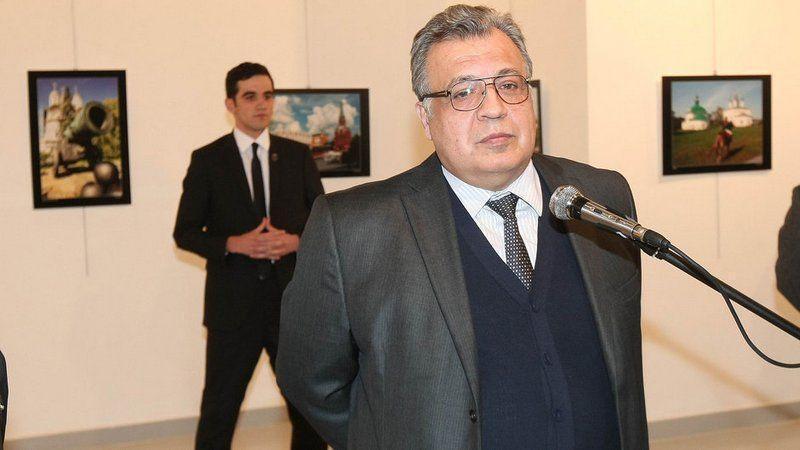Social media posts, e-mails of Turkish policeman who killed Russian ambassador deleted via virtual computer
Mesut Hasan Benli – ANKARA

Social media posts and e-mails sent by police officer Mevlüt Mert Altıntaş, who assassinated Russian Ambassador to Turkey Andrey Karlov in December 2016, were deleted with the help of a virtual computer, according to the latest findings in the investigation into the killing.
According to findings in the investigation, members linked to the network of U.S.-based Islamic preacher Fethullah Gülen m anaged to connect to Altıntaş’s mobile phone via VPN around the time of the assassination, deleting his Gmail and Facebook conversations.
The IP address that was used during the deletion had been leased from the U.S.-based Express VPN, which does not store activity or connection logs.
The prosecution’s contact with the company did not yield results as Express VPN stated that it is not subject to the rules of U.S. and EU laws.
However, the Ankara Chief Public Prosecutor’s Office later managed to reveal the serial number of computer used during the deletion, while surpassing security questions set by Altıntaş while signing up.
The authorities also contacted Apple to find the owner of the machine who deleted Altuntaş’s messages, but it was revealed that the serial number of the computer was set up via a virtual computer and that the computer did not physically exist.
The prosecutor’s office also could not get an affirmative response from the FBI over finding the contents of Altıntaş’s deleted mail account.
In addition, the passcode of Altıntaş’s phone could not initially be broken but anti-cyber crime units determined the password of Altuntaş’s iCloud mail address, revealing its backup data.
The prosecution requested that Apple provide the passcode but the request was rejected.
The prosecution then contacted another company to break Altuntaş’s passcode but the company demanded a large fee and did not guarantee whether it could open the phone. Talks with the firm broke down after it insisted on conducting the process abroad.
Separately, the prosecution has also began to investigate a 3G-live broadcast by Turkey’s state broadcaster TRT from the scene at the time of the assassination.
As a part of investigations ongoing since last year, some 33 suspects have testified and four have been arrested by the courts.
Recently, former police officer Ramazan Yücel, who was previously dismissed from his post over alleged links to the Gülen network, was arrested on Dec. 14 in connection to Karlov’s killing, on charges of “participating in premeditated murder.”
Karlov was shot dead with nine bullets fired by Altıntaş late on Dec. 19, 2016 while delivering a speech for a photography exhibition at an arts center in Ankara. Altıntaş was later gunned down in an exchange of fire with security personnel at the scene.
















